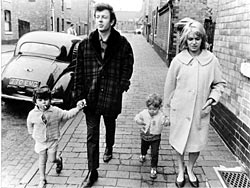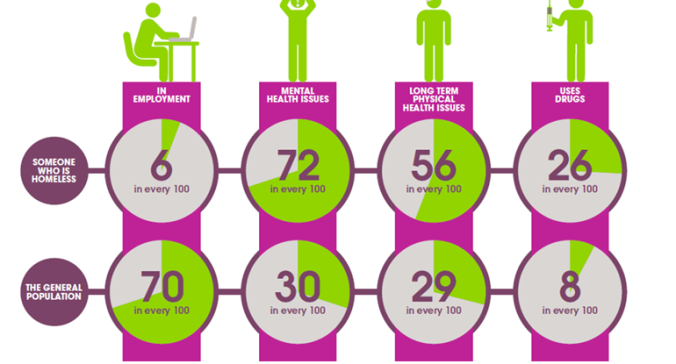 Ok. I admit it. I’ve worked in housing for many years and I’d not seen Cathy Come Home. When people mentioned it I’d nod knowingly and quickly move the conversation on.
Ok. I admit it. I’ve worked in housing for many years and I’d not seen Cathy Come Home. When people mentioned it I’d nod knowingly and quickly move the conversation on.
Well, enough was enough. So last night I watched the famous Ken Loach film.
And while the documentary turns 50 in November it was still a hard-hitting, incisive and emotional story of how a family can, through some poor luck and a couple of bad choices, fall to the deepest depths – and be failed by the society around them.
When it aired in 1966, 12 million people watched, a quarter of the population, caused a public outcry, a discussion in parliament and a swell of support for Crisis and Shelter, which were set up within a year of broadcast.
But what has changed?
The slums have gone, and families are no longer split apart, but in a BBC Inside Out interview marking the 40th anniversary, Ken was unconvinced by the lasting impact of his iconic film.
And when he spoke at the National Housing Federation’s Homes for Britain rally last year he said, simply, ‘it is much worse now’.
So what can we learn from the 50-year-old film today?
The spiral can be sharp and fast
The descent from happy couple with a child on the way, living comfortably and dreaming big was rapid. An accident at work, an illness, family and financial breakdown can escalate quickly. Cathy and Reg were an ordinary, everyday family – it could easily have been me and my family.
And without a home, a stable place to build from, it is hard to put the other bits of your life together – as this graphic from Homeless Link starkly sums up.

Meanwhile The Guardian featured an article on how poor housing affects mental health.
It found children who’ve lived in temporary accommodation for over a year are three times as likely to have mental health problems, including depression and anxiety, compared to their peers.
We’ve not changed our language
We still have a problem about how we talk about people in housing need.
In 1966 you’d hear words like ‘scrounger’, ‘lay about’ and ‘lazy’. That language wasn’t out of place in the skivers v strivers debate a few years ago.
Language matters. How we talk about poverty shapes the policies we create to tackle it.
There’s a great Open University podcast, The Language of Poverty, featuring political commentator @OwenJones84 and social policy lecturer @GerryMooney60, if you want to hear more about this.
We need a new film – but we need a movement more
The film was powerful. 50 years ago many were upset, many supported the emerging charities such as Shelter or Crisis.
So while much has changed, much has stayed the same too.
It made me want to grab a camera and film a new Cathy Come Home, for 2016 – anyone interested?
But as Ken said: “A film isn’t a movement, it’s just a film. A film can agitate a little, illustrate, but it’s part of the process. Unless you organise, nothing much will happen – people turn off the telly or walk out of the cinema and that’s it.”
The captive BBC audience has gone, but the rise of social media would help spread a powerful idea and the issue quickly.
But to solve the housing crisis – tackling homelessness right through to affordable homeownership – can only be possible with a collective, committed long term plan involving government, house builders, local authorities, housing associations and charities.
So when Cathy turns 60, in 2026, I hope we can say how bad things used to be, not be reminded of how far we have to go.
Good post Tim. Here’s hoping…